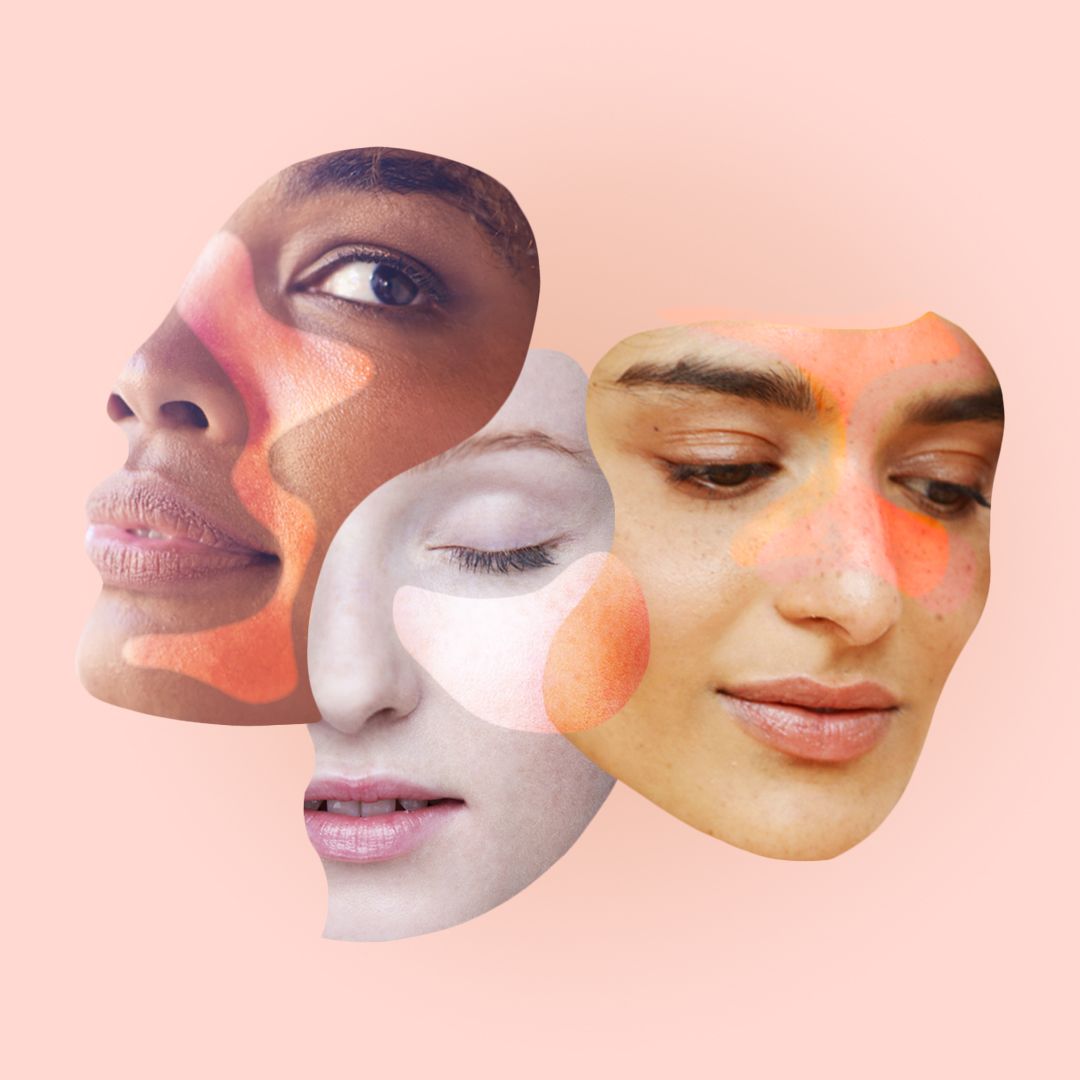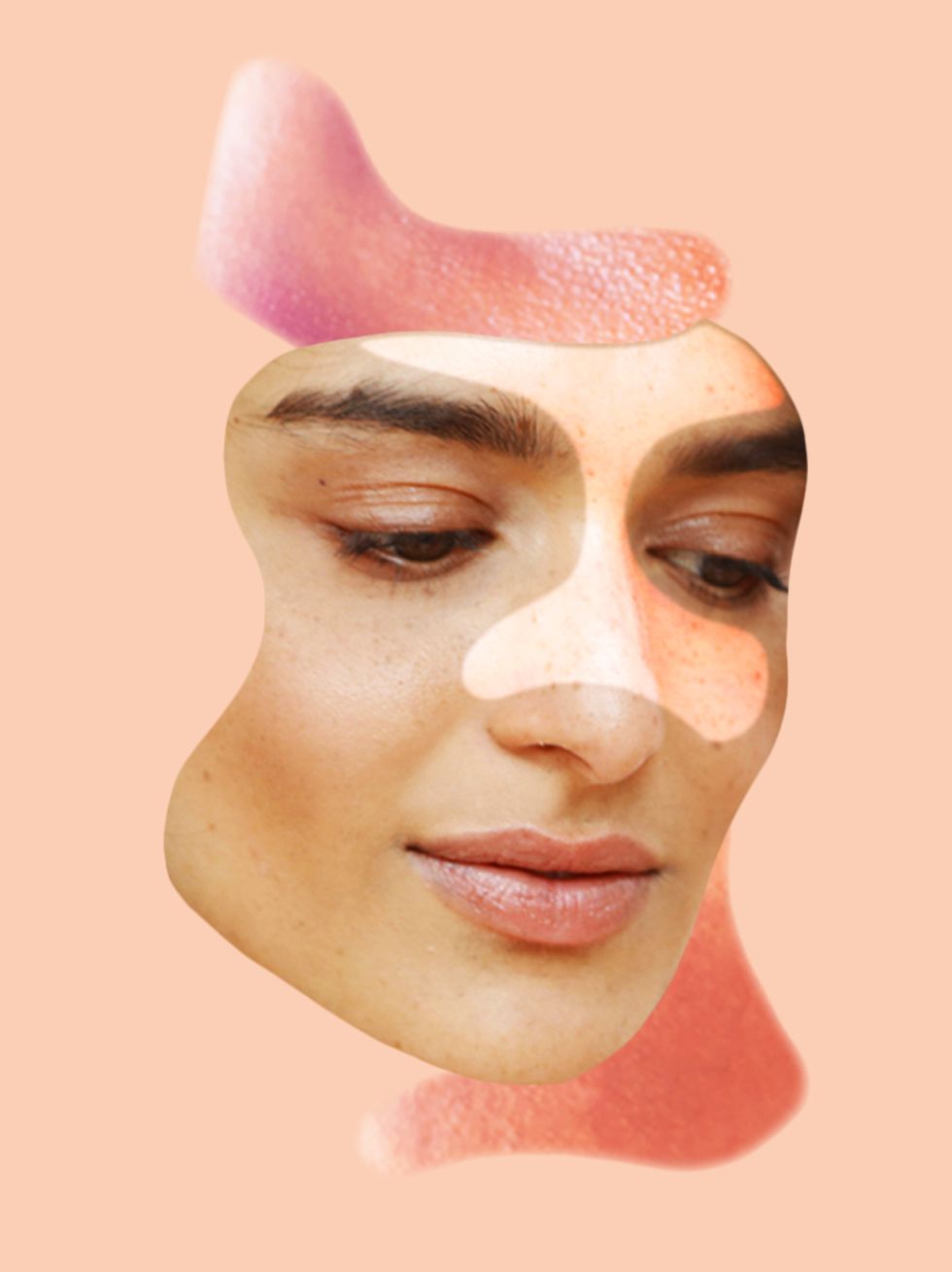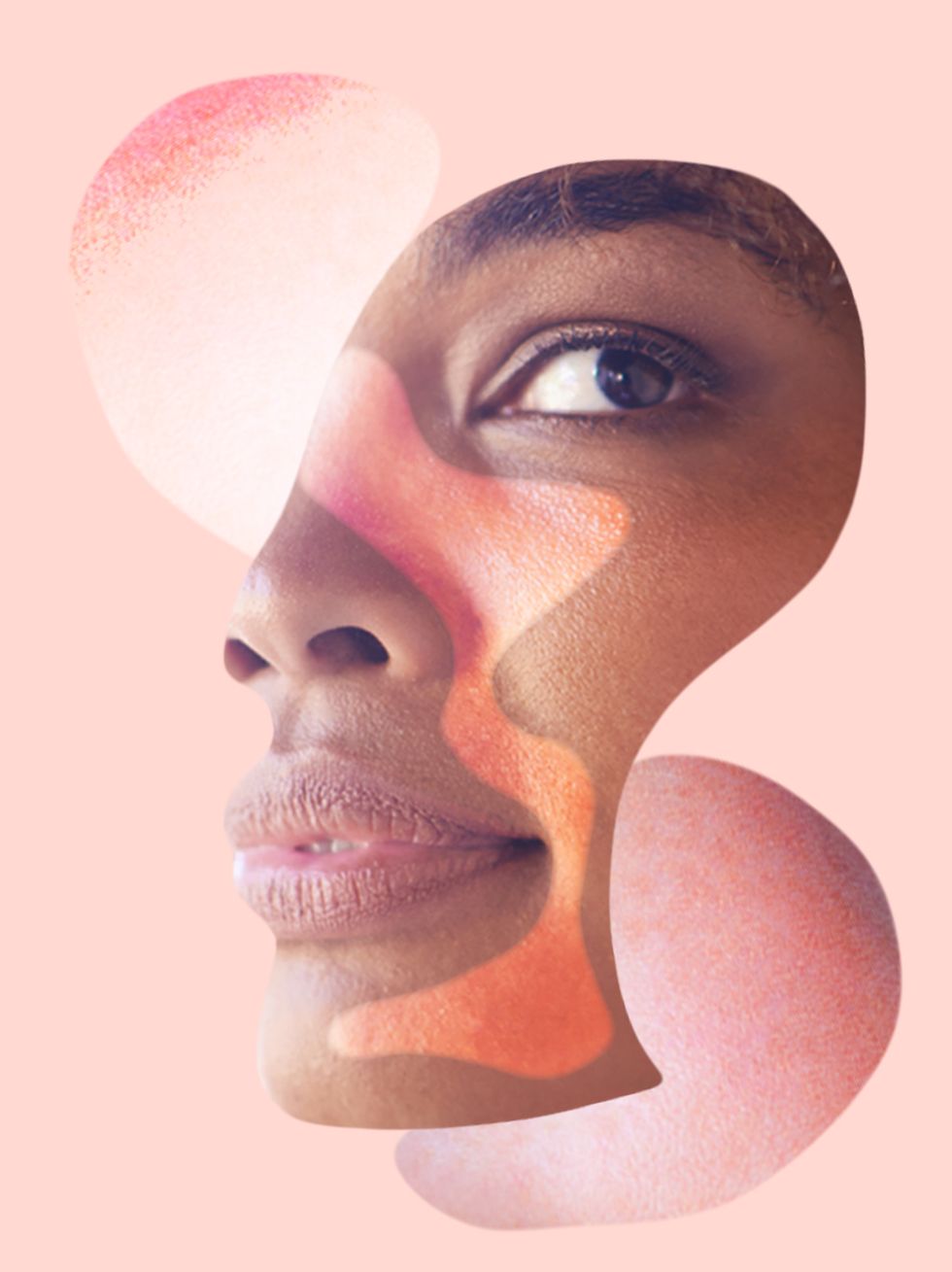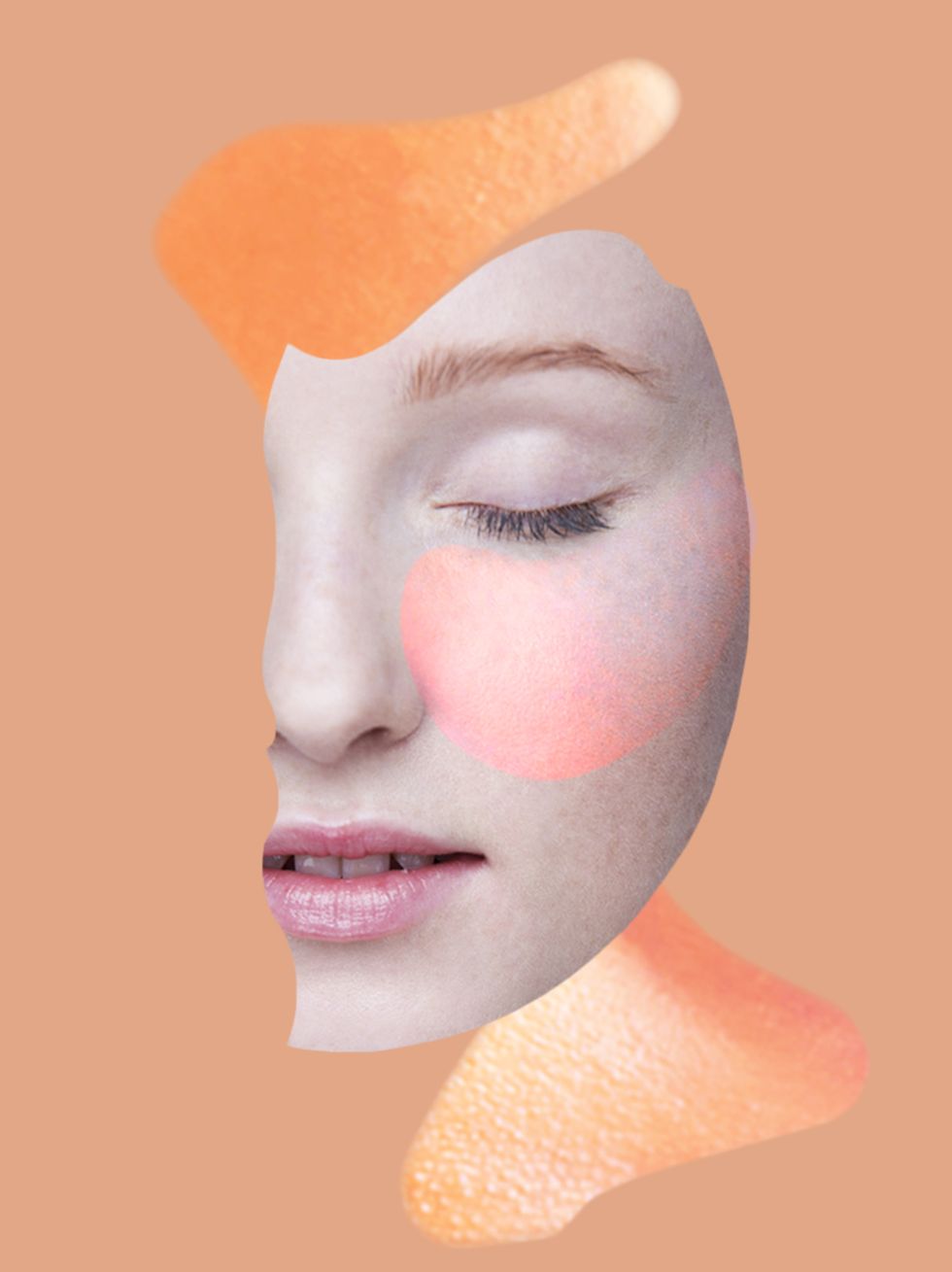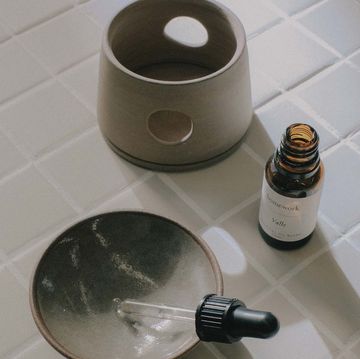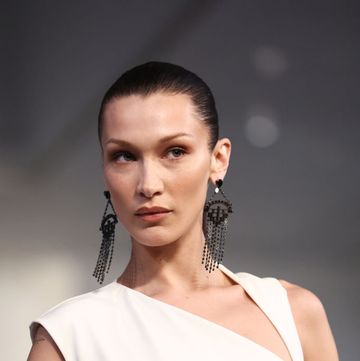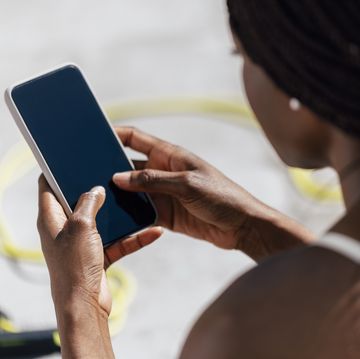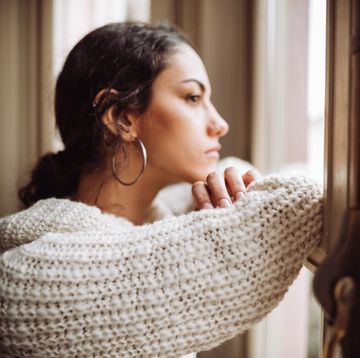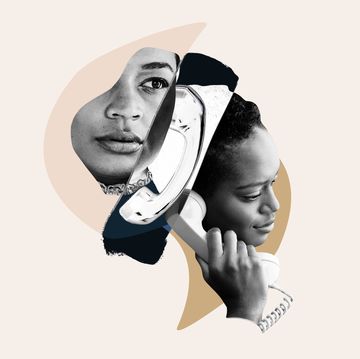10 million people. The population of Sweden, Maisie Williams' Instagram following, or how many people in the UK say that a skin condition has affected their mental health. All three are technically correct, but only one stands out as truly shocking.
In a study commissioned by E45, a massive 81% of us have experienced a skin problem, with a quarter (26%) saying it makes them feel depressed. Covering conditions such as eczema, psoriasis, rosacea and acne, the results reveal the worrying emotional impact caused by our largest external organ.
Between a lack of information, misdiagnosis by doctors and the increasing pressure from social media to appear 'perfect', it's no wonder we've become a country where 'bad' skin is contributing to our mental health crisis. So why aren't we connecting the dots between our skin and our mental health? And, more importantly, how long can we ignore the psychological fallout from hating our faces?
'You'll grow out of it'
When you're fifteen, being described as a 'spotty teenager' might feel like the end of the world. When you're in your 20s or 30s, however, the feeling of shame and embarrassment that often comes with experiencing acne can be even more devastating.
And it's becoming more common, too. 'Acne affects about 80% of the population at some time in their lives,' explains dermatologist Dr Anjali Mahto. 'But it’s not just teenage girls. We’re seeing a lot more of adult acne - my clinics are full of 20, 30, 40 year-old women suffering.'
29-year-old Hannah Underwood never had bad skin growing up. So as an adult, people simply thought she was dirty because 'there's a belief that acne is something that happens to teenagers who need to wash,' she explains. 'When you're a teenager, you're surrounded by other people with it and it’s a thing everyone assumes you grow out of. As an adult, I felt so much more embarrassed because no one else was suffering.'
'It took a toll on my confidence, especially at work when I had to do presentations. I'd get way more nervous than I ever would before. I’d find it difficult to have face-to-face conversations because I just didn’t like the attention being on me.'
As Hannah's experience shows, a skin condition, severe or otherwise, not only sucks, but can cause problems with body confidence and provoke social isolation and even withdrawal, depression or anxiety.
Dr Mahto knows 'all about' these symptoms. And the stats are equally hard to ignore: acne sufferers are 63% more likely to experience depression than those with clear skin. Why, then, are we still suffering in silence?
The problem starts with people – even medical professionals – not believing that acne is a serious issue. Psychodermatology has emerged as a relatively new branch of dermatology, acknowledging the link between your skin and your mind. Prior to this, though, you'd be hard pressed to find a medical professional prepared to conflate the two. 'Patients were disempowered, told: "It’s only your skin, it’s just acne"', says Dr Anthony Bewley, Consultant Dermatologist and co-founder of the Psychodermatology service at The Royal London Hospital.
'Patients felt completely isolated, and like imposters, and that just made things worse rather than better.'
It's clear from the extent to which patients' mental health has been overlooked, that there still exists a dangerous lack of medical resources and training for handling such issues. We still live in a 'treat the problem at hand' culture, rather than supporting practises of looking at problems holistically and aiming for preventative measures rather than just cures.
'Healthcare professionals often have two misconceptions,' explains Bewley. 'Firstly, the idea that if they suggest to a patient with a skin condition that they may also have a resulting mental health issue, it will in turn encourage one. For example, if you say to a patient, "Do you feel low or anxious?" that’s then going to make them feel low and anxious. That's of course a mistake. In fact, it’s a pressure release rather than an additional pressure to ask those questions.'
'The second issue we have to deconstruct is what healthcare professionals should do if a patient answers yes to these questions. They might think it's beyond their training to deal with it, and it's really not. Anyone who's gone through medical training is able to manage a cry for mental health support and, if not, they can always refer to a professional that can,' Bewley finishes.
Lex Gillies (aka Talonted Lex) has experienced first-hand a doctor that lacked specific training on the potential psychological impact of her skin condition.
'I've had rosacea most of my adult life,' she explains. 'First diagnosed aged 21, as soon as the doctor saw me he was like, "Ok it’s rosacea and there's no cure". He gave me a cream to ease the symptoms and basically sent me on my way.
'I remember leaving and thinking: "this is absolutely awful, is this what my face is going to look like for the rest of my life?" I was devastated. On top of that, the cream I was given made my skin one hundred times worse, but I didn’t want to go back to the doctor's office, because they were so unhelpful. A couple of years later it got to the point where my skin was so aggravated – it was so dry on my cheeks that it would crack and bleed. I felt like a monster.
'Eventually I did go back and the doctor gave me a really thick emollient cream and told me I shouldn't be wearing make-up because that could be aggravating my rosacea. I tried to tell them that the thought of leaving the house without make-up made me want to be sick. I couldn’t fathom ever wanting to leave the house looking like that.'
Quality Of Life
Combine cripplingly low self-esteem with endless doctor's appointments, plus skin-aggravating creams, and it's unsurprising The British Medical Journal found that more than 55% of rosacea sufferers would willingly trade a year or more of their life for a cure.
Shocking, yes, but it just goes to show: having a skin condition seriously affects your quality of life. For a lot of people, life doesn't feel worth living.
As Lex points out: 'Rosacea isn’t life threatening but it can threaten your life.
'The amount of messages I get from people who have basically become hermits – they don’t leave the house, they quit their jobs. It makes me so sad that doctors don’t realise that just because its not actually killing you, it can still be something that makes you want to die.'
It's a narrative that dermatologist Dr Mahto sees often in her clinic. 'A woman in her sixties had terrible acne that had never been treated,' she explains. 'She told me that she'd actually started working from home because she couldn't face going into the office looking like that. She changed her entire career so people wouldn't have to look at her.'
Making The Link And Moving Forward
With overstretched and undertrained medical staff, and a lack of information around the psychological effects of skin conditions readily available, it can be all too easy for the link between the two to go unnoticed or underestimated.
For Hannah, the journey was a long one. 'I ignored my skin for ages which lead to a gradual build up of anxiety,' she explains. 'When it got to the point where I didn't want go to work because of my skin, I decided I had to do something. I went to the doctors and they gave me a topical cream to treat my acne, but it didn't help. After that I became even more anxious but I didn't know why.'
She was sent for 'all kinds' of physical tests: ovarian scans to rule out Polycystic Ovaries, blood tests, and was taken off the contraceptive pill. 'They just couldn't draw the link between my acne and my mental health,' she adds. 'Finally I decided to go private because I wasn't getting the help I needed and they prescribed me Accutane.'
Unfortunately for Hannah and others with acne-prone skin, depression can sometimes be a side effect of Accutane, which made it even harder to figure out what was mental health, and what was medicine. Thankfully, the real cause of Hannah's anxiety soon became clear: 'As soon as my skin started to clear up my anxiety went away.'
What can you do if you're suffering?
Seeking help for mental health issues isn't always simple, but help is out there.
For Lex, a therapist who focuses on 'appearance, skin conditions and their impact' has proved essential. Dr Anjali, meanwhile, encourages seeing a consultant dermatologist. 'One of my real bugbears is, because the NHS is so pushed for appointments at the moment, that there are so many people that think they can do skin, but they’re not derms,' she says.
Head to the British Cosmetic Dermatology Group, which offers a range of accredited specialists. If you're not in a position to go private (and let's be honest, very few of us will be), arming yourself with the right information is key. Finding an informed GP can sometimes feel like pot luck, so read up (see below for specialist sites), know the facts, and flag that you're aware of the link between bad skin and mental health. Just because they don't mention it, doesn't mean you can't.
What's more, Psychodermatology is opening more doors for people who previously would have struggled with the unseen effects of living with a skin condition. We're getting better at talking about it, and that can only be a good thing.
And while there's no denying social media can be a hot soup of toxic comparison culture, it can also be a safe haven. A place where those who feel marginalised or alone can find a community that champions authentic images of all sorts of skin conditions.
'In the same ways social media can have a very negative impact on distorting our perceived ideals, it can also have a positive influence,' says cosmetic dermatologist and Youtuber, Dr Sam Bunting.
'Movements like #skinpositivity and #redefinepretty are saying it's okay to talk about this. I've personally seen a huge increase in the honesty around acne prone skin in our closed facebook group - it's a safe space where people can go to share their experiences.'
Instagram won't cure a serious mental health or skin condition, but chances are that finding people with similar experiences will provide you with more extensive information and support at best, and an empathetic ear at the very least.
Or, as Dr Mahto puts it, 'No skin problem should make you feel that you can't live your life. Because it’s so treatable.'
